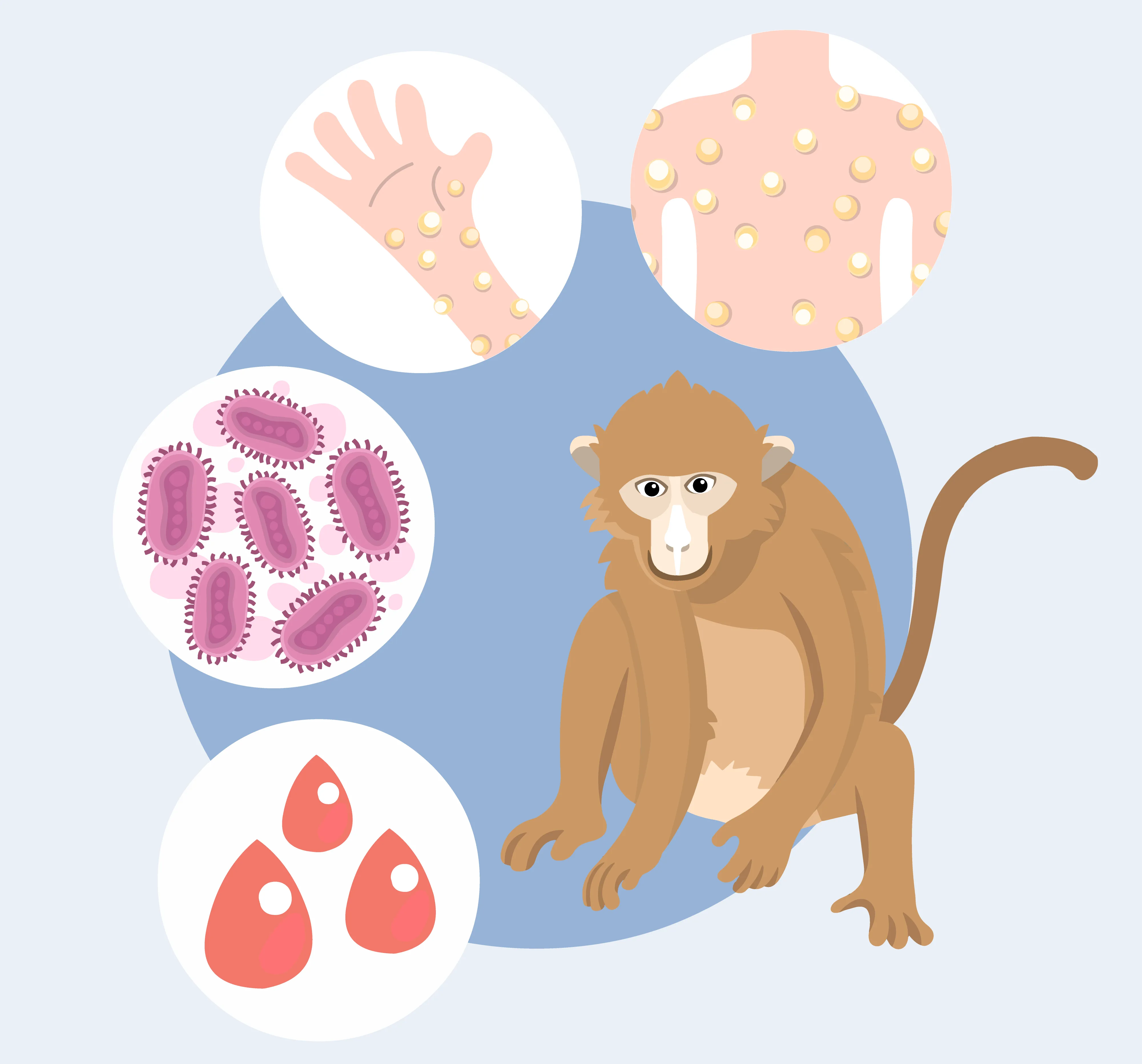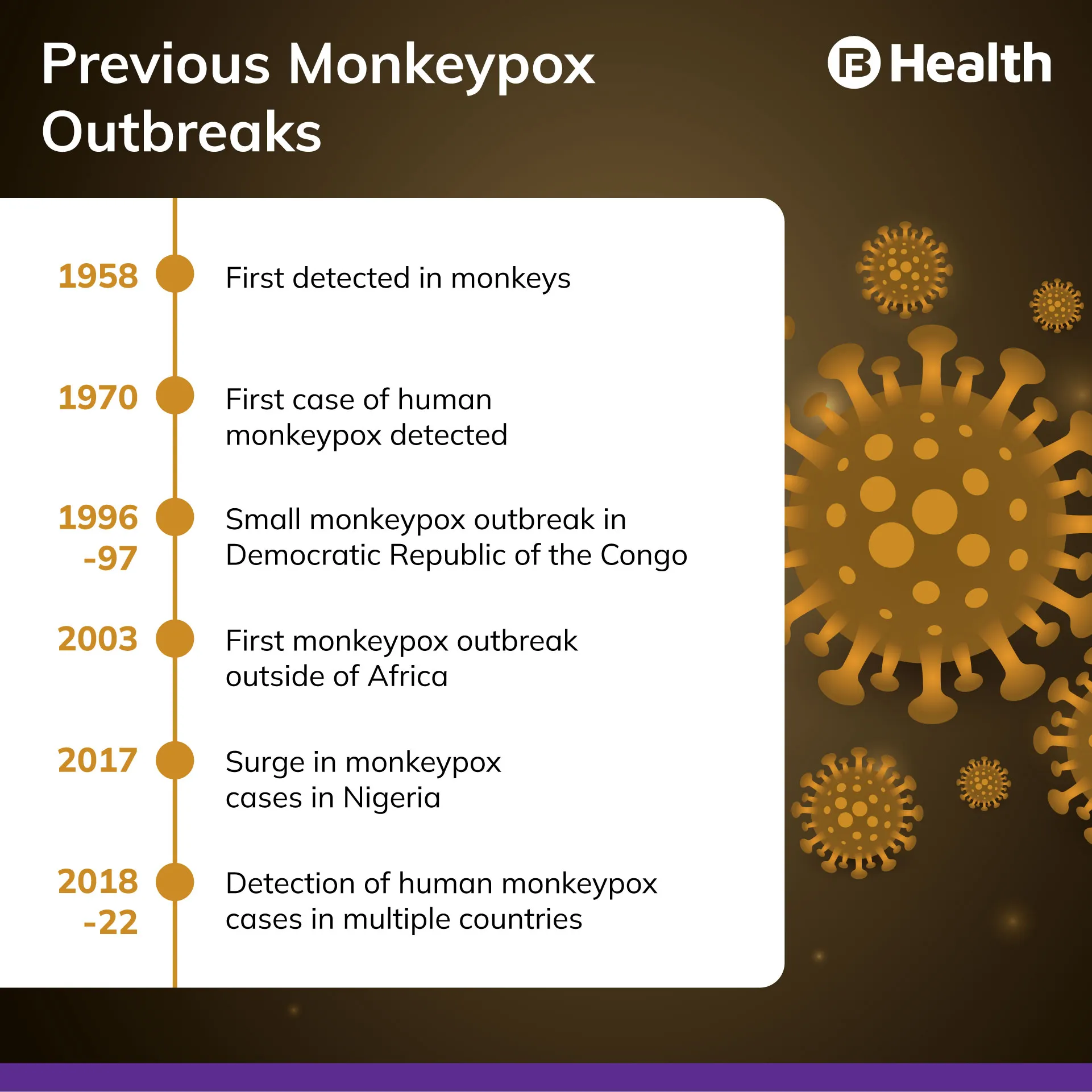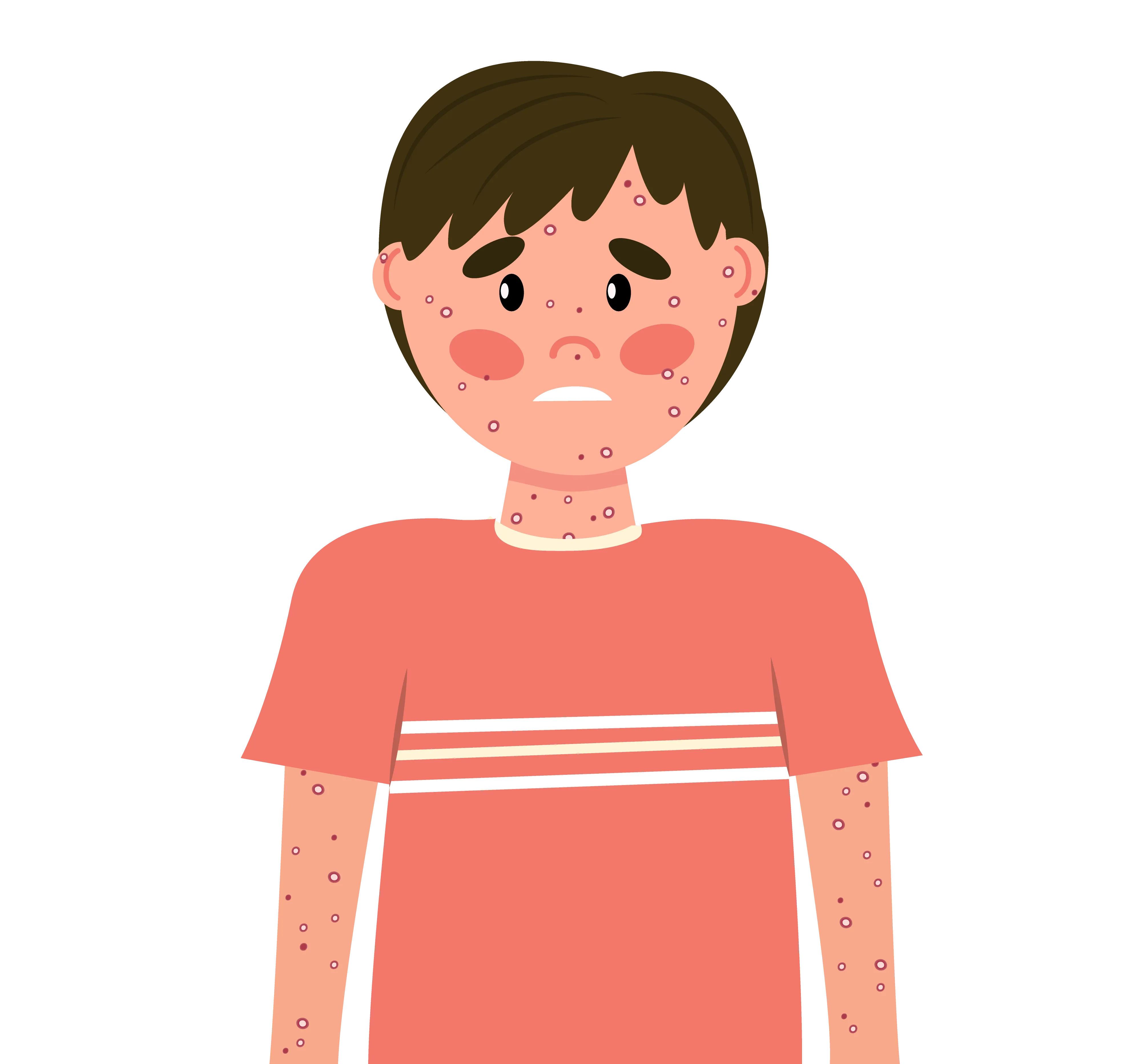General Health | 5 min read
Know About Monkeypox: Symptoms, Causes, Treatment and Prevention
Medically reviewed by
Table of Content
Synopsis
With the recent worldwide outbreak of the monkeypox virus, here’s important information regarding the history of monkeypox, and its causes, symptoms, modes of transmission, monkeypox prognosis, and more.
Key Takeaways
- The first case of human monkeypox was detected in 1970
- Monkeypox can spread from both humans and animals
- Currently, there is no proven cure for monkeypox disease
Monkeypox is the name of a virus and viral infection currently making headlines because of the recent outbreak. In 1958, the viral disease was first discovered among monkeys, and from there, the name ‘monkeypox’ originated [1]. The first instance of infection among human beings was recorded 12 years later, in 1970. Though the virus is not something new, the concern is growing for it because of the increasing cases amidst the COVID-19 pandemic.
According to WHO, over 300 cases of monkeypox have been reported in non-endemic countries. This simultaneous and sudden surge in cases suggests that transmission of the virus was undetected for some time [2]. It has been discovered that vaccines for smallpox are somewhat beneficial for monkeypox treatment. However, only people of the older age groups can get immunity from these vaccines. Given this, it becomes imperative for you to know more about monkeypox symptoms, causes, and treatment.
A zoonotic disease, it can spread both via human-to-animal contact and human-to-human contact. If diagnosed early with mild symptoms, monkeypox prognosis becomes easy, and the infection is unlikely to turn fatal.
Monkeypox Causes
The primary cause is contact with the monkeypox virus. One can get infected by coming in close contact with an already infected human or animal. The disease has some similarities with smallpox as the viruses responsible for both belong to the orthopoxvirus genus of the virus family named Poxviridae.

Monkeypox Symptoms
The incubation period for monkeypox ranges between 5 to 21 days, and symptoms generally last for 2 to 4 weeks. Initial symptoms in humans include the following:
- Headaches
- Chills and fever
- Fatigue and exhaustion
- Swelling in the lymph nodes
- Muscle aches
- Rashes with bumps
- Blisters filled with pus
The rashes generally occur a few days after the fever develops. In most cases, the rash occurs on the face, which then turns into blisters. These blisters become crusted after a while and later fall off. The number of lesions and the place of lesions may vary as they are mainly dependent on the severity of the infection.
Additional Read: Omicron Symptoms and New VariantsHow is Monkeypox Transmitted?
As mentioned, monkeypox can spread either through animals or through humans. In a zoonotic spread, i.e., animal to human contact, the person directly comes into contact with an infected animal’s body fluids, blood, lesions, etc. Animals other than monkeys can transmit the monkeypox disease too. These animals mostly include rodents and other species of monkeys. The 2003 monkeypox outbreak in the US occurred through pet prairie dogs [3].
Like animals, transmission through humans also occurs when one person comes into contact with an infected person. This contact includes respiratory droplets, touching contaminated surfaces, or infected skin lesions and rashes. Monkeypox can also be transmitted to a fetus.

How is Monkeypox Diagnosed
Diagnosing monkeypox can take some time. This is because it is a rare disease, and its symptoms are similar to many other conditions, including smallpox, chickenpox, scabies, or measles. If your doctor suspects that you have monkeypox, they may collect a sample of your infected tissue as well as a blood sample. The tissue is then sent for examination in a lab, and the blood sample is sent for a blood test. The blood test is to look for the presence of the monkeypox virus or the antibodies that your body produces to fight the infection.
Is there a Cure for Monkeypox?
Currently, there is no cure for monkeypox. Though there is a vaccine for monkeypox, it is not available for everyone. Moreover, people in the older age group who were able to receive the vaccine prior to eradication of the smallpox disease have better immunity against it. As a result, treatment will mainly focus on treating the symptoms and providing you some relief from them. These options mainly consist of antiviral medicines that were previously used for the treatment of the smallpox virus.

Preventive Measures to Keep Monkeypox at Bay
- Avoiding contact with infected animals and humans
- Following proper hygiene practices like frequent hand wash and sanitization of surfaces
- Giving yourself proper protection if caring for an infected patient
- Staying in isolation if infected with the virus or came in contact with an infected animal or human
- Consuming well-cooked meat
Since this disease spreads through close contact like the COVID-19 infection, it is best to follow practices that keep you at a safe distance from the infectious disease.
Additional Read: Vitiligo Disease Treatment and CausesArmed with this information, be sure to take the necessary steps to not only protect yourself but also help prevent the spread. The best way to do that is to keep an eye out for monkeypox symptoms. If you notice any symptoms of monkeypox, contact a doctor immediately. Timely diagnosis and treatment can make your recovery better.
Book an online appointment to consult with experts on Bajaj Finserv Health. You can consult with a general physician of your choice and get great treatment and advice from your home. If needed, you can also book a blood test or any other required lab test on the platform. With sample pickup from home, you need not leave your house and worry about the spread of the disease. This way, with simple proactive measures, you can put your health first!
References
- https://www.cdc.gov/poxvirus/monkeypox/index.html#
- https://www.who.int/emergencies/disease-outbreak-news/item/2022-DON388
- https://www.who.int/news-room/fact-sheets/detail/monkeypox
Disclaimer
Please note that this article is solely meant for informational purposes and Bajaj Finserv Health Limited (“BFHL”) does not shoulder any responsibility of the views/advice/information expressed/given by the writer/reviewer/originator. This article should not be considered as a substitute for any medical advice, diagnosis or treatment. Always consult with your trusted physician/qualified healthcare professional to evaluate your medical condition. The above article has been reviewed by a qualified doctor and BFHL is not responsible for any damages for any information or services provided by any third party.





